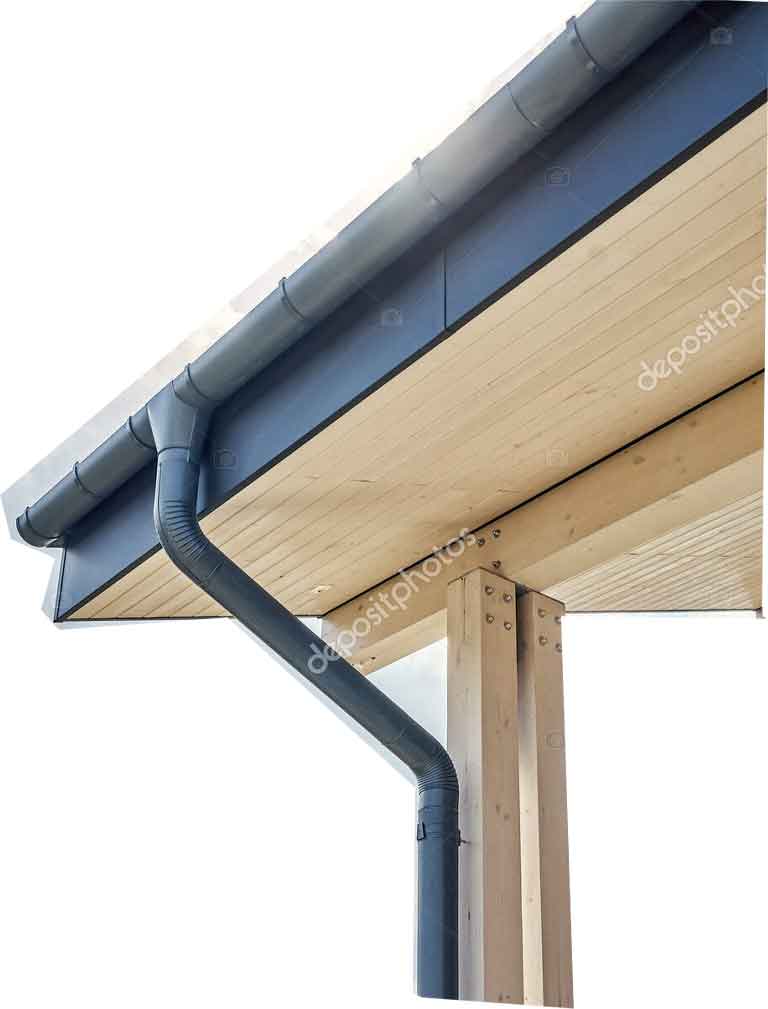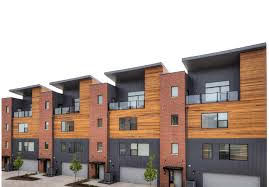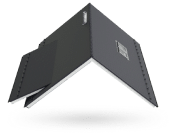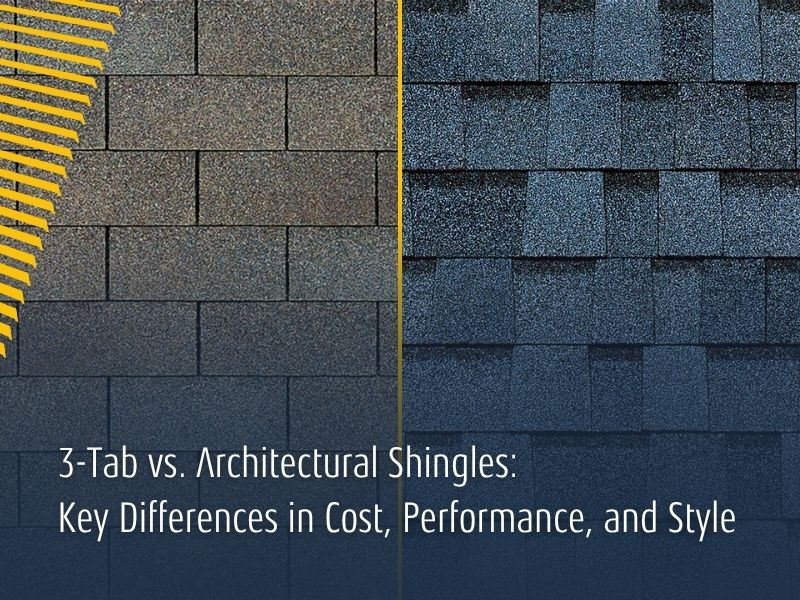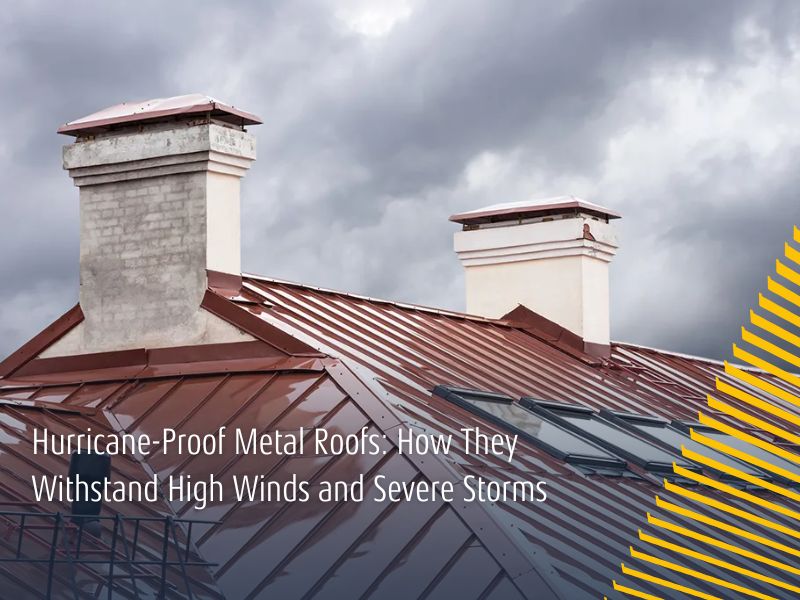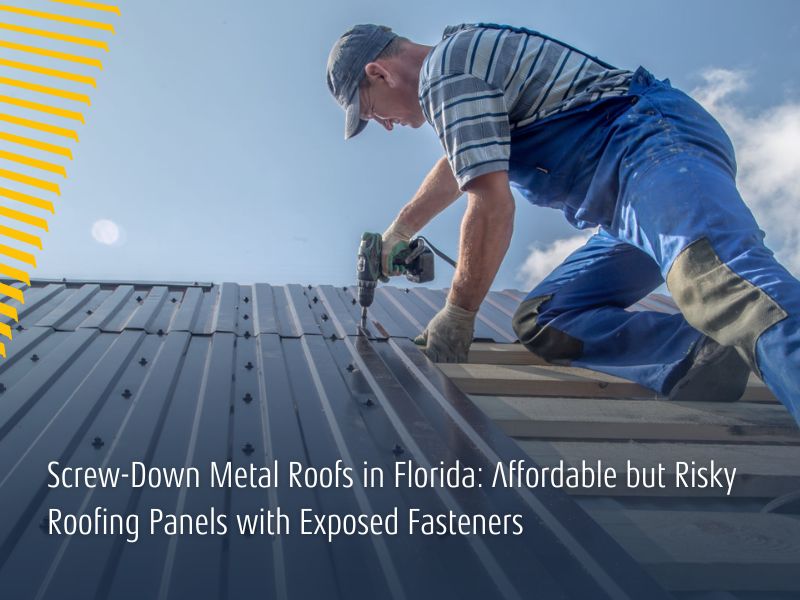Choosing the right roof is one of the most important decisions for homeowners in coastal Florida. With year-round humidity, salt air from the ocean, and the constant risk of hurricanes, your roofing material must deliver long-term durability without sacrificing affordability or curb appeal. Synthetic shingles have become one of the strongest contenders because they replicate the natural beauty of cedar shake, slate, or tile while offering durability, low maintenance, and a lighter weight design at a fraction of the cost.
This article explains how synthetic shingles compare to traditional roofing, why they are especially effective in Florida’s coastal climate, and what you should know about their types, durability, costs, warranties, and long-term performance. You will also learn how to get an exact, transparent price for your project using SmartPRO’s SmartQuote tool, which allows Florida homeowners to save 20% or more on average by buying their new roof completely online, without dealing with high-pressure sales visits.
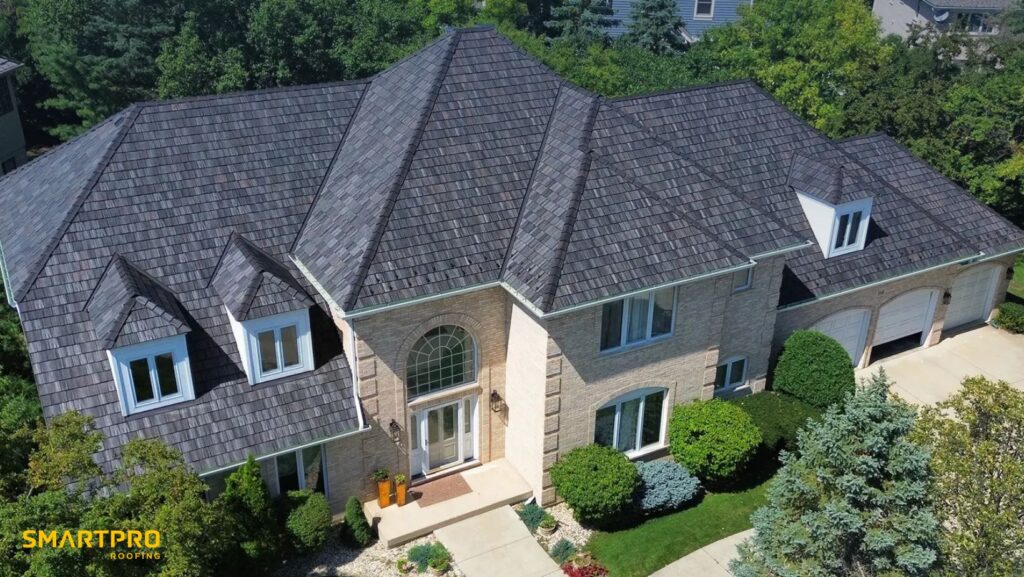 Synthetic shingles are engineered roofing products created from advanced composite and recycled materials. They are designed to mimic the appearance of natural slate, cedar shake, or clay tile while overcoming the drawbacks of those traditional products.
Cedar shake roofing, while attractive, is vulnerable to rot, pests, and warping in Florida’s humid environment. Slate, although elegant, is heavy, expensive, and requires structural reinforcement to support its weight. By contrast, synthetic shingles are lighter, more affordable, and built to resist moisture, UV rays, and high winds.
Compared to asphalt shingles, which remain common across the U.S., synthetic shingles generally offer a longer roof lifespan, higher impact ratings, and reduced maintenance needs. Their sustainable design also appeals to homeowners who want roofing that provides both strength and environmental benefits.
Synthetic shingles are engineered roofing products created from advanced composite and recycled materials. They are designed to mimic the appearance of natural slate, cedar shake, or clay tile while overcoming the drawbacks of those traditional products.
Cedar shake roofing, while attractive, is vulnerable to rot, pests, and warping in Florida’s humid environment. Slate, although elegant, is heavy, expensive, and requires structural reinforcement to support its weight. By contrast, synthetic shingles are lighter, more affordable, and built to resist moisture, UV rays, and high winds.
Compared to asphalt shingles, which remain common across the U.S., synthetic shingles generally offer a longer roof lifespan, higher impact ratings, and reduced maintenance needs. Their sustainable design also appeals to homeowners who want roofing that provides both strength and environmental benefits.
 Durability is where synthetic shingles shine. Engineered with advanced polymers and tested against industry standards, many synthetic shingles achieve high ratings for impact and wind resistance. While specific ratings vary by manufacturer, premium products are often designed to handle debris from storms and withstand winds exceeding 100 mph.
Unlike wood shakes that split and asphalt shingles that curl with age, synthetic materials maintain their structural integrity for decades. This makes them particularly valuable in Florida’s environment, where roofs are under constant pressure from heat, moisture, and storms.
When paired with professional installation, synthetic shingles can provide decades of reliable protection, often backed by manufacturer warranties that extend 40–50 years.
Durability is where synthetic shingles shine. Engineered with advanced polymers and tested against industry standards, many synthetic shingles achieve high ratings for impact and wind resistance. While specific ratings vary by manufacturer, premium products are often designed to handle debris from storms and withstand winds exceeding 100 mph.
Unlike wood shakes that split and asphalt shingles that curl with age, synthetic materials maintain their structural integrity for decades. This makes them particularly valuable in Florida’s environment, where roofs are under constant pressure from heat, moisture, and storms.
When paired with professional installation, synthetic shingles can provide decades of reliable protection, often backed by manufacturer warranties that extend 40–50 years.
 Extreme weather is a fact of life in Florida, and synthetic shingles are engineered to perform under those conditions. Many products are tested to resist hail impacts, maintain structural integrity under UV exposure, and endure high-speed winds.
This resilience makes synthetic shingles an ideal choice for hurricane-prone areas. While no roof is entirely storm-proof, the combination of impact resistance and wind performance helps reduce the risk of costly repairs after major weather events.
Extreme weather is a fact of life in Florida, and synthetic shingles are engineered to perform under those conditions. Many products are tested to resist hail impacts, maintain structural integrity under UV exposure, and endure high-speed winds.
This resilience makes synthetic shingles an ideal choice for hurricane-prone areas. While no roof is entirely storm-proof, the combination of impact resistance and wind performance helps reduce the risk of costly repairs after major weather events.
What are synthetic shingles and how do they compare to traditional roofing?
 Synthetic shingles are engineered roofing products created from advanced composite and recycled materials. They are designed to mimic the appearance of natural slate, cedar shake, or clay tile while overcoming the drawbacks of those traditional products.
Cedar shake roofing, while attractive, is vulnerable to rot, pests, and warping in Florida’s humid environment. Slate, although elegant, is heavy, expensive, and requires structural reinforcement to support its weight. By contrast, synthetic shingles are lighter, more affordable, and built to resist moisture, UV rays, and high winds.
Compared to asphalt shingles, which remain common across the U.S., synthetic shingles generally offer a longer roof lifespan, higher impact ratings, and reduced maintenance needs. Their sustainable design also appeals to homeowners who want roofing that provides both strength and environmental benefits.
Synthetic shingles are engineered roofing products created from advanced composite and recycled materials. They are designed to mimic the appearance of natural slate, cedar shake, or clay tile while overcoming the drawbacks of those traditional products.
Cedar shake roofing, while attractive, is vulnerable to rot, pests, and warping in Florida’s humid environment. Slate, although elegant, is heavy, expensive, and requires structural reinforcement to support its weight. By contrast, synthetic shingles are lighter, more affordable, and built to resist moisture, UV rays, and high winds.
Compared to asphalt shingles, which remain common across the U.S., synthetic shingles generally offer a longer roof lifespan, higher impact ratings, and reduced maintenance needs. Their sustainable design also appeals to homeowners who want roofing that provides both strength and environmental benefits.
Why are synthetic roofs ideal for coastal Florida homes?
Florida’s climate puts every roof to the test. Constant humidity accelerates mold and rot, salt air causes faster corrosion of materials, and hurricane-force winds can tear shingles loose in seconds. Synthetic shingles were developed with these challenges in mind. A high-quality synthetic shingle roof can be rated for impact resistance and tested to withstand severe wind conditions. Many options are also UV-resistant, which helps preserve color and prevent material breakdown under Florida’s year-round sunshine. For homeowners in hurricane-prone regions, these features provide extra peace of mind that their roof investment is built for resilience. Because synthetic shingles balance aesthetics with performance, they are increasingly chosen by Florida homeowners who want a roof that looks like natural slate or cedar shake but holds up against storms, salt air, and intense humidity.What types of synthetic shingles are available?
There are several types of synthetic shingles, allowing homeowners to select a style that complements their architecture. Options typically include:- Synthetic slate shingles that replicate the timeless appeal of natural slate at a fraction of the weight and cost.
- Synthetic cedar shake shingles that offer the rustic look of wood without the risk of mold, rot, or insect damage.
- Composite faux tile shingles that mimic Mediterranean or Spanish-style roofs while offering a lighter, easier-to-install design.
How durable are synthetic roofing products?
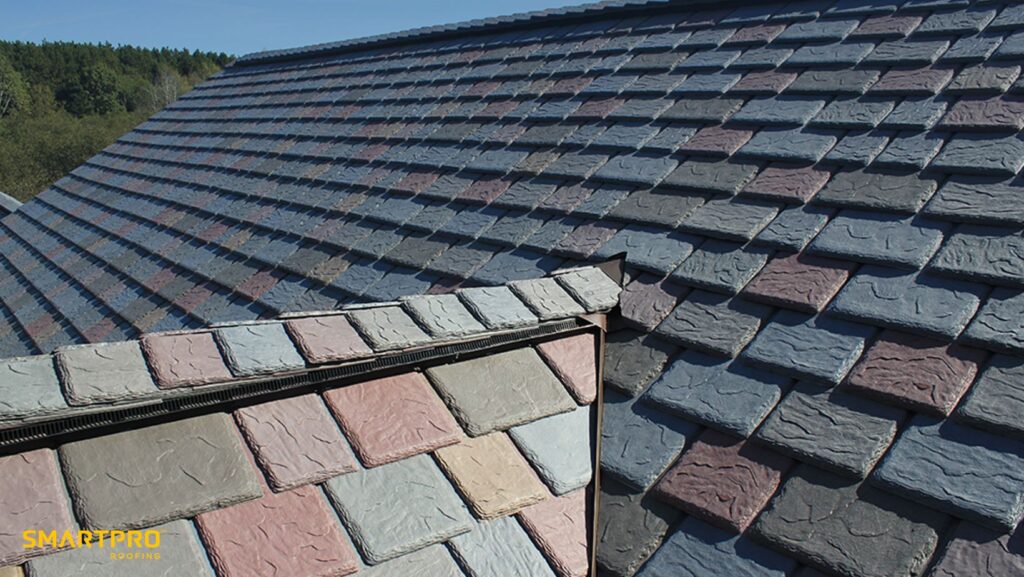 Durability is where synthetic shingles shine. Engineered with advanced polymers and tested against industry standards, many synthetic shingles achieve high ratings for impact and wind resistance. While specific ratings vary by manufacturer, premium products are often designed to handle debris from storms and withstand winds exceeding 100 mph.
Unlike wood shakes that split and asphalt shingles that curl with age, synthetic materials maintain their structural integrity for decades. This makes them particularly valuable in Florida’s environment, where roofs are under constant pressure from heat, moisture, and storms.
When paired with professional installation, synthetic shingles can provide decades of reliable protection, often backed by manufacturer warranties that extend 40–50 years.
Durability is where synthetic shingles shine. Engineered with advanced polymers and tested against industry standards, many synthetic shingles achieve high ratings for impact and wind resistance. While specific ratings vary by manufacturer, premium products are often designed to handle debris from storms and withstand winds exceeding 100 mph.
Unlike wood shakes that split and asphalt shingles that curl with age, synthetic materials maintain their structural integrity for decades. This makes them particularly valuable in Florida’s environment, where roofs are under constant pressure from heat, moisture, and storms.
When paired with professional installation, synthetic shingles can provide decades of reliable protection, often backed by manufacturer warranties that extend 40–50 years.
How much do synthetic shingles cost?
While the upfront cost of synthetic shingles is typically higher than asphalt shingles, they are far more affordable than real slate or cedar shake. More importantly, they deliver long-term savings by reducing roof repairs, lowering maintenance needs, and extending the roof’s overall life. The exact cost depends on the type of shingle selected, the complexity of your roof, and the roofing contractor handling the installation. For homeowners in Florida who want transparent pricing without a salesperson at their door, SmartPRO’s SmartQuote tool provides an instant, accurate price online. On average, SmartPRO customers save 20% or more compared to traditional roofing companies.Do synthetic shingles require special maintenance?
One of the biggest advantages of synthetic shingles is their low maintenance design. Unlike natural cedar or slate, they resist mold, rot, and cracking. Regular roof maintenance still matters, including occasional inspections of flashing, roof membranes, and accessories, but upkeep is minimal compared to traditional materials. Florida homeowners who switch to synthetic shingles often find that they spend less on long-term maintenance and repairs. With SmartPRO, you can also use SmartQuote to budget your project upfront and plan for a roof that saves you money over its entire lifespan.How do synthetic shingles perform in extreme weather?
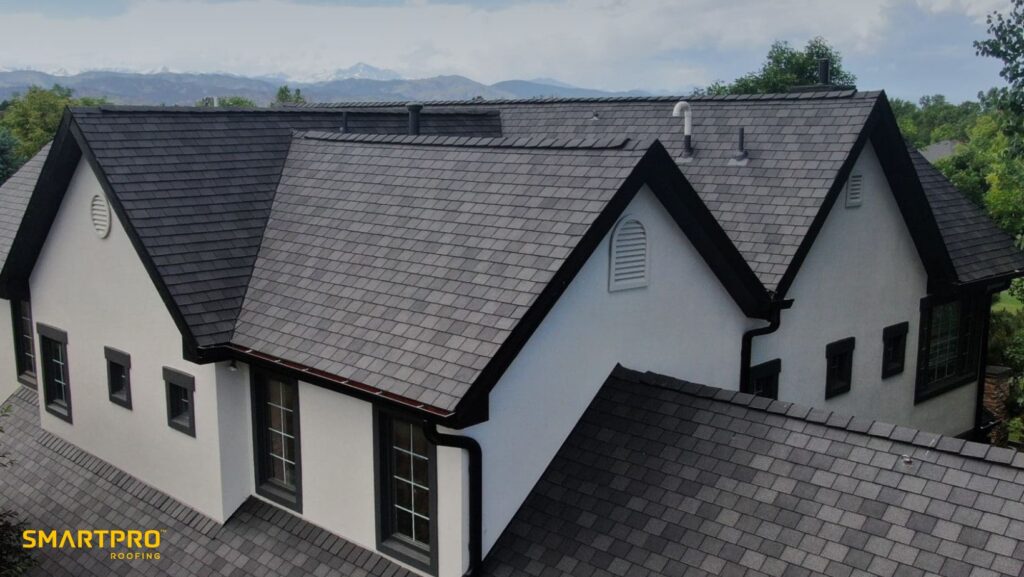 Extreme weather is a fact of life in Florida, and synthetic shingles are engineered to perform under those conditions. Many products are tested to resist hail impacts, maintain structural integrity under UV exposure, and endure high-speed winds.
This resilience makes synthetic shingles an ideal choice for hurricane-prone areas. While no roof is entirely storm-proof, the combination of impact resistance and wind performance helps reduce the risk of costly repairs after major weather events.
Extreme weather is a fact of life in Florida, and synthetic shingles are engineered to perform under those conditions. Many products are tested to resist hail impacts, maintain structural integrity under UV exposure, and endure high-speed winds.
This resilience makes synthetic shingles an ideal choice for hurricane-prone areas. While no roof is entirely storm-proof, the combination of impact resistance and wind performance helps reduce the risk of costly repairs after major weather events.
How do synthetic shingles compare to slate and cedar shake?
Natural slate and cedar shake roofs are undeniably beautiful but not always practical in Florida. Slate is heavy and expensive, requiring reinforced structures and specialized labor. Cedar shake, while charming, struggles against Florida’s humidity and pests. Synthetic shingles deliver the same visual appeal without the compromises. They are lightweight, eco-friendly, and designed to withstand the very conditions that cause natural materials to fail. For homeowners seeking premium curb appeal with dependable protection, synthetic shingles strike the ideal balance.What warranties come with synthetic shingles?
Warranty protection varies by manufacturer, but many synthetic shingles come with extensive coverage, sometimes up to 40 or 50 years. These warranties may include material coverage, wind damage protection, and impact resistance guarantees. It is always important to review warranty details carefully and confirm coverage with your roofing contractor. A strong warranty, combined with proven product performance, ensures your new roof is both a safe and smart investment.Are synthetic shingles a sustainable choice?
Yes. Many synthetic shingles are made from recycled materials, reducing landfill waste and dependence on natural resources. They also last significantly longer than asphalt shingles, lowering the frequency of replacements. For Florida homeowners who value sustainability, synthetic shingles offer both ecological and economic benefits, protecting your home while helping reduce waste and energy costs.Key takeaways on synthetic shingles for coastal Florida homes
- Synthetic shingles replicate the look of slate, cedar shake, or tile without the cost or weight.
- They are engineered for durability and performance in Florida’s challenging coastal environment.
- Many options are impact- and wind-resistant, with warranties that can extend 40–50 years.
- Maintenance needs are minimal compared to natural or asphalt roofing materials.
- They are eco-friendly, often made from recycled materials, and contribute to energy savings.
- Homeowners can use SmartQuote to see exact pricing instantly, saving 20% or more on average with SmartPRO.



